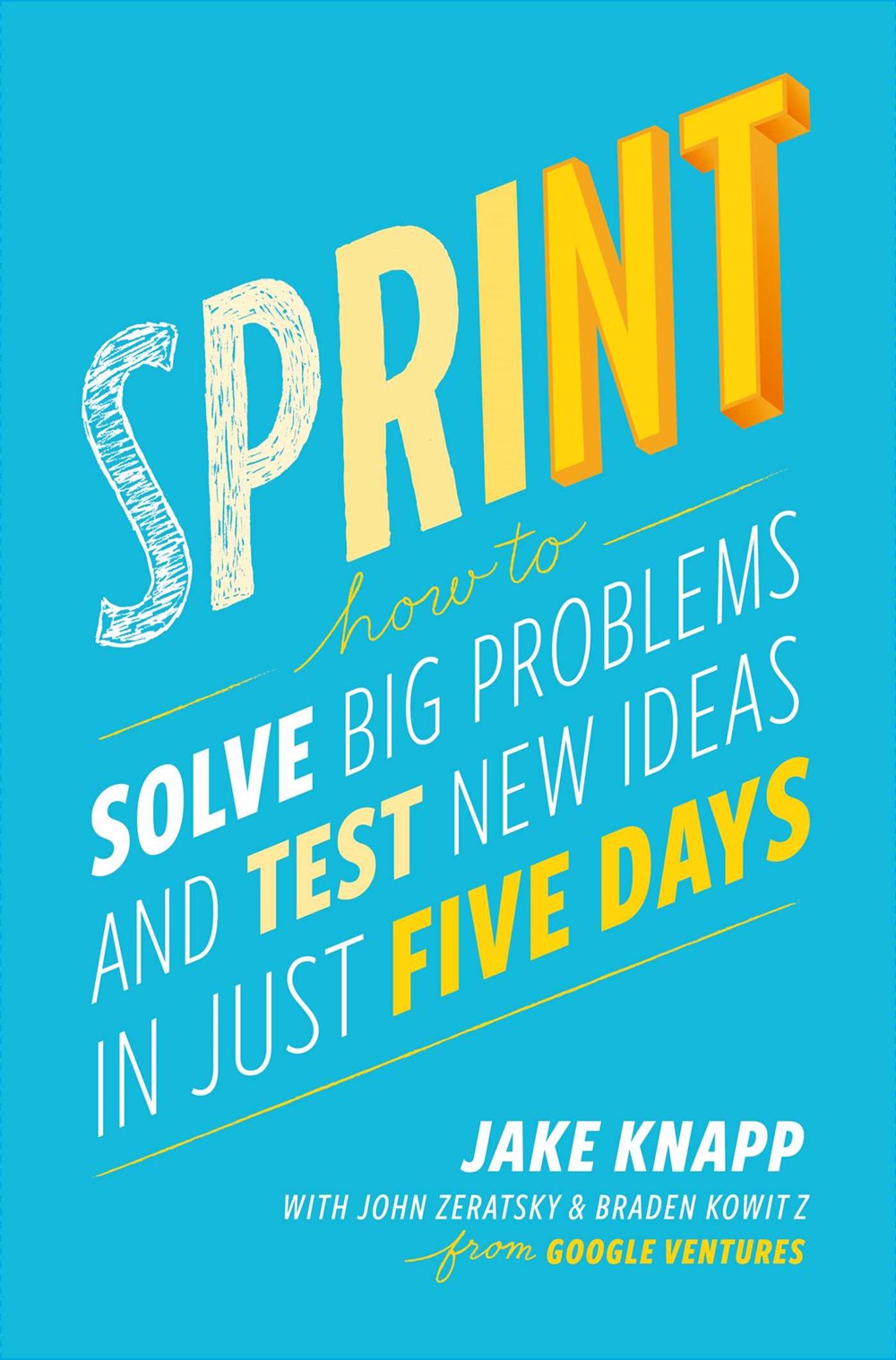Sprint: How to Solve Big Problems and Test New Ideas in Just Five Days
March 11, 2016
From three partners at Google Ventures, a step-by-step guide to going from problem to prototype in five days using the same method that led to Gmail, Google X, and Chrome.

“Sprint offers a transformative formula for testing ideas that works whether you’re at a startup or a large organization. Within five days, you’ll move from idea to prototype to decision, saving you and your team countless hours and countless dollars. A must read for entrepreneurs of all stripes.” —Eric Ries, author of The Lean Startup
Entrepreneurs and leaders ask tough questions every day: Where’s the most important place to focus our effort, and how do we start? What will our idea look like in real life? How many meetings and discussions does it take before we can be sure we have the right solution?
Three partners at Google Ventures—Jake Knapp, John Zeratsky, and Braden Kowitz—developed a surefire way to answer these questions both quickly and effectively: they call it “the sprint.” Together, they have completed more than 100 sprints with companies in mobile, e-commerce, healthcare, finance, and more. Now they’re ready to share what they’ve learned with the masses with Sprint: How to Solve Big Problems and Test New Ideas in Just Five Days (S&S; Hardcover; 3/8/16).
A sprint offers a path to solve big problems, test new ideas, get more done, do it faster, and have fun along the way. In Sprint, Knapp, Zeratsky, and Kowitz walk readers through the five-day process one step at a time:
- Monday: Start at the end and agree to a long-term goal. Next, you’ll make a map of the challenge and in the afternoon, you’ll ask experts at your company to share what they know. Finally, you’ll pick a target: an ambitious but manageable piece of the problem that you can solve in one week.
- Tuesday: You and your team will begin to come up with solutions. Start by reviewing existing ideas to remix and improve. Then, following a four-step process that emphasizes critical thinking over artistry, each person will sketch his or her ideas. These sketches will be used later to develop prototypes and tests.
- Wednesday: Critique the different solutions that were developed on Tuesday and decide which ones have the best chance of achieving your long-term goal. Then, take the winning scenes from your sketches and weave them into a storyboard: a step-by-step plan for your prototype.
- Thursday: You’ll adopt a “fake it” philosophy to turn your storyboard into a realistic prototype. The authors explain the mindset, strategy, and tools that make it possible to build that prototype in just seven hours.
- Friday: It’s time to test your prototype! You’ll interview customers and learn by watching them react to your product. This test makes the entire sprint worthwhile: at the end of the day, you’ll know how far you have to go, and you’ll know just what to do next.
In addition to providing a detailed step-by-step guide to running your own sprint, the book is also filled with dozens of behind-the-scenes stories of successful sprints, including Blue Bottle Coffee, Savioke, Medium, Nest, Foundation Medicine, and many more. Knapp, Zeratsky, and Kowitz also include checklists for necessary materials and personnel, sample questions that can help facilitate the process if your team gets stuck, as well as an FAQ section for easy reference.
A practical guide to answering critical business questions, Sprint is a book for teams of any size, from small startups to Fortune 100s, from teachers to non-profits. It’s for anyone with a big opportunity, problem, or idea who needs an answer today.
ABOUT THE AUTHORS
Jake Knapp created the Google Ventures sprint process and has run more than a hundred sprints with startups such as 23andme, Slack, Nest, and Foundation Medicine. Previously, Jake worked at Google, leading sprints for everything from Gmail to Google X. He is currently among the world’s tallest designers.
John Zeratsky has designed mobile apps, medical reports, and a daily newspaper (among other things). Before joining Google Ventures, he was a design lead at YouTube and an early employee of FeedBurner, which Google acquired in 2007. John writes about design and productivity for Wall Street Journal, Fast Company, and Wired. He studied journalism at the University of Wisconsin.
Braden Kowitz founded the Google Ventures design team in 2009 and pioneered the role of “design partner” at a venture capital firm. He has advised close to two hundred startups on product design, hiring, and team culture. Before joining Google Ventures, Braden led design for several Google products, including Gmail, Google Apps for Business, Google Spreadsheets, and Google Trends.



